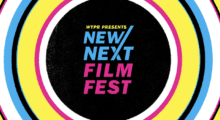Festivals & Events
Festivals & Events
-
Fantasia International Film Festival Announces Third Wave of 2023 Programming

Fantasia International Film Festival announces today the third wave of titles for its 2023 lineup, with first and second wave titles revealed earlier this spring. The 27th edition of the festival will run from July 20 through August 9 at Montreal’s Concordia Hall Cinema, with additional screenings to be held at the J.A. DeSève Cinema, Cinémathèque québécoise, and Cinéma du Musée. Pre-sale tickets will be available on Saturday, July 15 at 1pm EST. In the meantime, check out the full list of additional titles, panels, events and jurors at this year’s Fantasia, and visit the festival’s official website for more […]
-
The 2023 Locarno Film Festival Lineup Features Lav Diaz, Radu Jude, Quentin Dupieux and More

The full lineup has been unveiled for the 76th Locarno International Film Festival, which will take place in the Swiss town from August 2-12. At a glance, highlights include new films from Filipino slow cinema auteur Lav Diaz, Romanian social satirist Radu Jude, zany French funnyman Quentin Dupieux and Argentine director Eduardo Williams (who actually needs three films in a trilogy, anyway?). Also featured in this year’s lineup is Family Portrait, the feature debut from Lucy Kerr, who we included on our annual 25 New Faces of Film list last year. Check out the full lineup below, and visit Locarno’s official […]
-
New/Next Film Festival Announces First Titles in Its Inaugural Lineup

New/Next Film Festival, produced by Baltimore NPR affiliate station 88.1 WYPR and curated by programmer Eric Allen Hatch, announces today the first titles in its inaugural 2023 lineup. The festival was created in reaction to the recent news that the Maryland Film Festival would not have a 2023 edition. New/Next will run from August 18-20 and be hosted at the five-screen Charles Theatre in Baltimore. “I’m thrilled to be back at The Charles Theatre, bringing some of the most exciting cinema I’ve seen in recent years to our audiences,” said Hatch, who was MdFF’s director of programming from 2010-2018, in […]
-
“I’m Not a Fly on the Wall, I’m Not Invisible”: Jeanie Finlay on Your Fat Friend

Over the past 15 years, British filmmaker Jeanie Finlay has earned a reputation for nuanced, sensitive and compelling documentary portraits. Her films have told many unlikely stories: the rise and fall of a reluctant Elvis lookalike in Orion: The Man Who Would Be King, two Scottish hip hop fraudsters in The Great Hip Hop Hoax, a pregnant transgender man in Seahorse. Her third feature film, Sound it Out, told the story of the last record shop in the Northeast of England and its owner, Tom Butchart, a school friend of Finlay’s. The morning after the world premiere of Finlay’s latest […]
-
Highlights from the Inaugural Edition of DC/DOX

“It’s so great that this festival is back again!” In one form or another, I kept hearing that phrase between June 15 to 18 at DC/DOX, a brand-new festival in the Washington, D.C. metro area. Sky Sitney, DC/DOX’s co-founder, was also a founder of the 1990s-born Silverdocs, a partnership between American Film Institute and Discovery Networks mourned by the entire doc community after it passed. Silverdocs morphed into AFI Docs when Discovery bailed, but AFI Docs was run out of AFI’s Los Angeles office and often seemed out of touch with DC. Meanwhile, Sitney co-founded a mini-festival, Double Exposure, with […]
-
Apply for PAM CUT’s 2023 Sustainability Labs

PAM CUT // Center for an Untold Tomorrow, the film and new media arm of the Portland Art Museum, is currently accepting applications for their third annual Sustainability Labs. The six month program is specifically tailored for multidisciplinary media storytellers, providing mentorship, career-developing resources and stipends to further their artistic practices. Applications close on July 1. “Our organization is all about artists who aren’t content to be contained—by medium, what’s come before or a singular type of media that they’re working with,” Amy Dotson, director of PAM CUT and curator of Film & New Media at the Portland Art Museum, […]
-
Tribeca Festival Announces 2023 Competition Winners

The Tribeca Festival announced competition winners for its 22nd annual edition during an awards ceremony yesterday at Racket NYC. Awards were presented in the following categories: Feature Film, Short Film, Audio Storytelling, Immersive, Games, Human / Nature, AT&T Untold Stories, and Tribeca X. So Young Shelly Yo’s Smoking Tigers and Guto Parente’s A Strange Path swept U.S. and International Narrative categories, while Andrew H. Brown and Moses Thuranira’s Between the Rains won two out of four awards in the Documentary Competition. Several of this year’s award winners have been covered on the Filmmaker site, including The Gullspång Miracle (Best Editing […]
-
Let Me Be Your Shelley Duvall: Stewart Thorndike on Bad Things

The haunted halls of a defunct Catskills hotel wreak psychological violence on a group of young, queer city slickers in Bad Things, the long-awaited sophomore feature from writer-director Stewart Thorndike. Arriving nearly a decade after Lyle, Thorndike’s sapphic take on Rosemary’s Baby starring Gabby Hoffmann, Bad Things similarly tackles plot points and thematic fixations of another scary movie staple—Stanley Kubrick’s The Shining—through a thoroughly queer and feminist perspective. Ruthie (Gayle Rankin) is debating whether or not to sell the now-derelict hotel her mother used to run years prior. With a decisive real estate meeting only days away, Ruthie assembles a […]
-
Executive Director Anne Hubbell on the Provincetown International Film Festival at 25

Founded in 1999 and situated in the historic arts colony on the Massachusetts Cape, the Provincetown International Film Festival has been a bastion for independent filmmakers and their projects for a quarter of a century, with classics such as Hedwig and the Angry Inch, Cameraperson and Coffee & Cigarettes appearing across its programming. PIFF has also long been known for its established rapport with queer directors (John Waters has returned annually to present awards and host events) and the the LGBTQ+ community that resides in the town year-round. PIFF’s 2023 edition, which begins today and runs through the 18th, is the festival’s […]
-
13 Films To Watch at the 2023 Tribeca Festival

The 2023 Tribeca Film Festival kicked off last night with Nenad Cicin-Sain’s Kiss the Future and now continues with its characteristically densely packed program of features, interactive and new media works, television and special events. It’s the third year for Tribeca’s move to June, following Cannes, and the festival runs until June 18th, when the closing night picture is a 30th anniversary screening of Tribeca co-founder Robert DeNiro’s A Bronx Tale. “I really hope that people are adventurous in what they choose to experience at the festival and come see a lot,” Tribeca Festival Director Cara Cusumano told Filmmaker. “I […]










